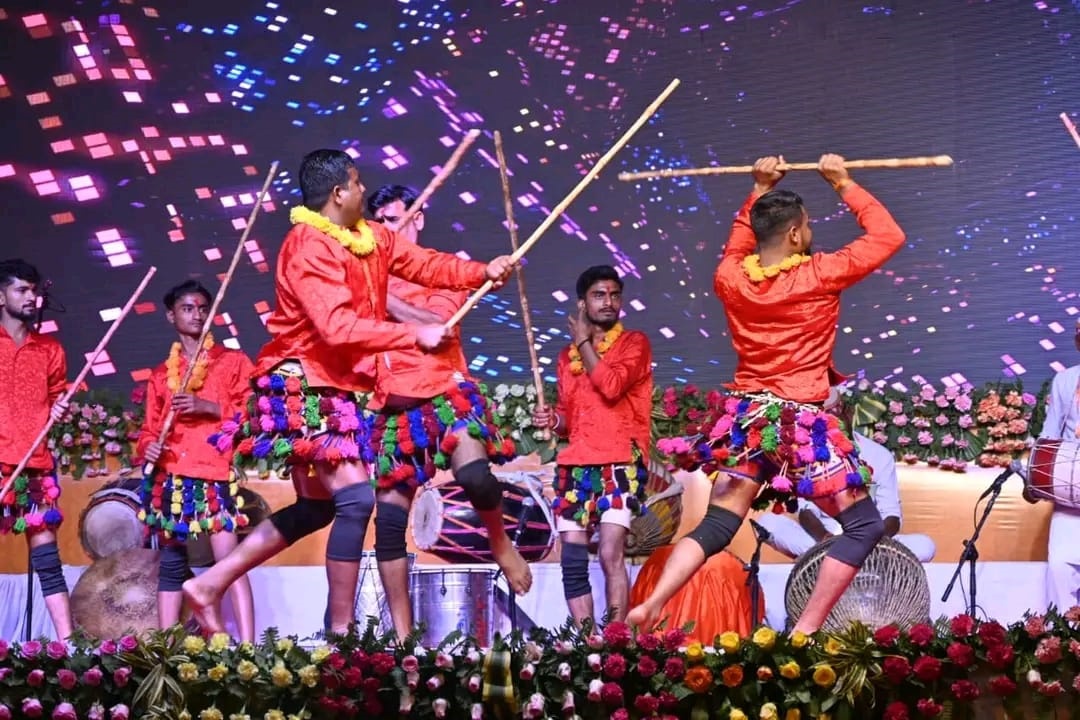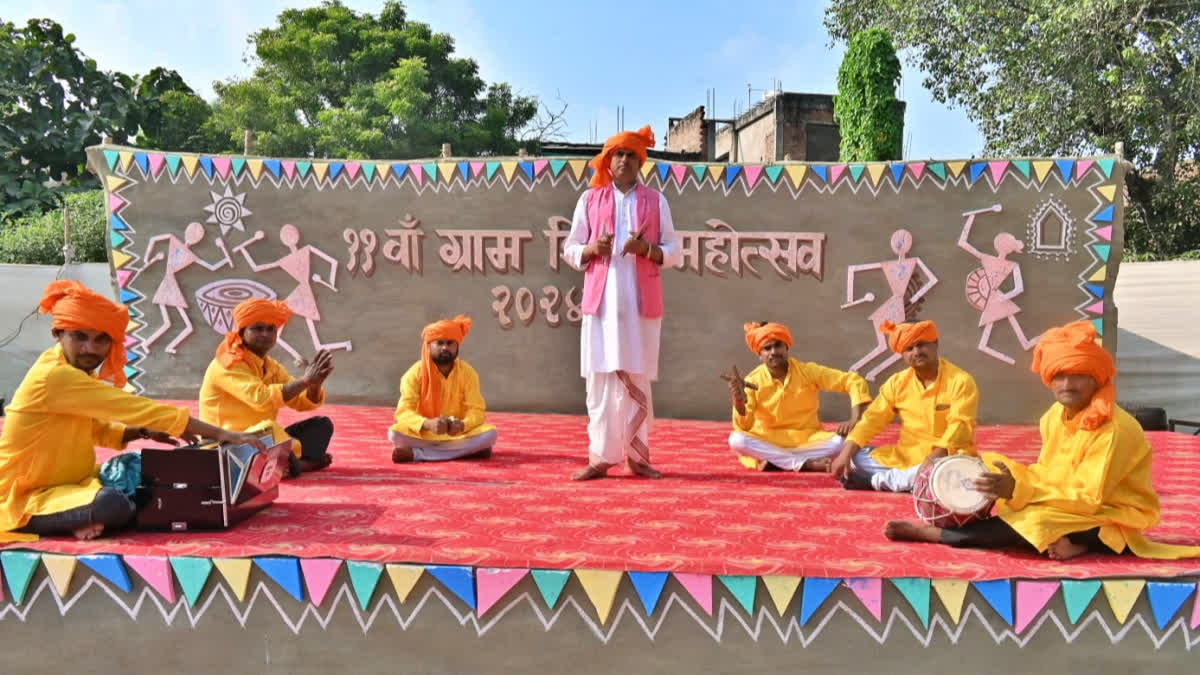The rhythms of tradition and echoes of UP folklore will take centrestage at the 13th edition of Living Traditions, a festival dedicated to celebrating the folk arts of India. The National Centre for the Performing Arts (NCPA) at Nariman Point in Mumbai is the venue for this wholesome experience.
Living Traditions 2025 is curated by Sangeet Natak Akademi awardee Rakesh Tiwari. Says Tiwari, “Folk arts are intrinsically linked to the livelihoods of communities, reflecting their histories, aspirations, and everyday realities.”
Throughout both days, visitors can witness demonstrations of traditional craft-making, including wooden toy creation and painting, offering insight into the region's material culture alongside its performing arts. Here's what to expect:
Day 1: Heroic Tales and Folk Expressions
Where: Experimental Theatre, NCPA
When: March 1, 2025, 6:30 pm
The festival opens with Alha, an epic folk ballad brought to life by Jitendra Chaurasia and his group. Composed in Bundeli and Awadhi around 1250 AD by poet Jagnik, Alha recounts the valorous deeds of warriors Alha and Udal of Mahoba. Traditionally performed from late monsoon through autumn, these gripping tales are brought to life through solo and group performances accompanied by the rhythmic beats of the dholak.
A striking contrast to this musical narrative is Pai Danda, a martial dance performed by Akhilesh Yadav and his troupe. Practised by the Ahir community in the districts of Hamirpur, Mahoba, and Banda, this energetic dance, inspired by the legendary exploits of Lord Krishna, sees performers, adorned with colourful flowers and anklets, moving in circular formations wielding wooden sticks, symbolising strength and agility and creating a mesmerising display of skill and storytelling.

The evening culminates with Beti Bachao, a Bundeli folk play directed by Dr. Himanshu Dwivedi and performed by a 25-member ensemble. Staging a powerful social message on gender equality, the play employs the swang tradition (folk theatre known for its expressive storytelling, music, and humour) accompanied by local instruments like the manjira, ghanta, and zinka.
Day 2: Songs of Longing and Dance of Devotion
Where: Experimental Theatre
When: March 2, 2025, 6:30 pm
The second day commences with Birha Gayan, a poignant musical tradition performed by Dipesh Kumar and his group. Originating in eastern U.P. and western Bihar, Birha expresses themes of separation, longing, and resilience. The performance includes various song types, such as purvi, keherwa, khemta, and sohar, demonstrating the versatility of this tradition. Once exclusively sung by men, the genre has evolved to include female voices, making it a dynamic and deeply resonant folk form.
Next, the stage transforms into a spectacle of colours with Mayur Nritya, a mesmerising dance from Braj. Led by folk artiste Barkha Singh, the performance enacts the legendary love story of Krishna and Radha, with dancers adorned in elaborate peacock-themed costumes. Traditionally performed during the monsoon, this dance mirrors the peacock’s courtship ritual, recreating the eternal love story of Krishna and Radha through specialised bird-like movements and gestures, blending fluid movements with vibrant folk music played on the dholak and nagada.
The festival concludes with Subhagi, a nautanki folk play presented by Santosh Kumar and his group. Adapted from a story by Munshi Premchand, this play follows the journey of Subhagi, a young widow who defies societal norms to reclaim her dignity and independence. Enriched by soulful songs and dynamic dance sequences, Subhagi exemplifies nautanki’s ability to merge entertainment with social critique.



